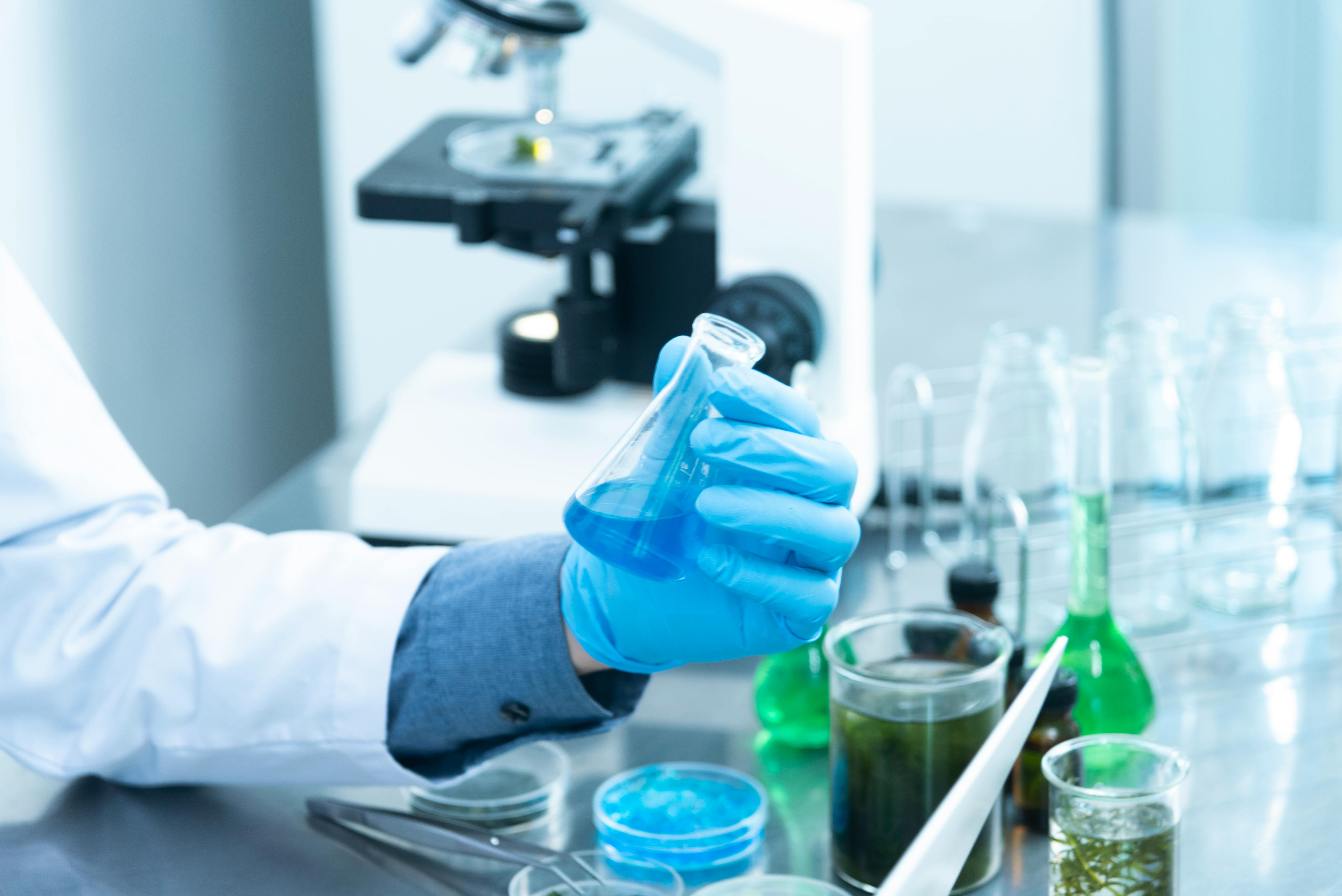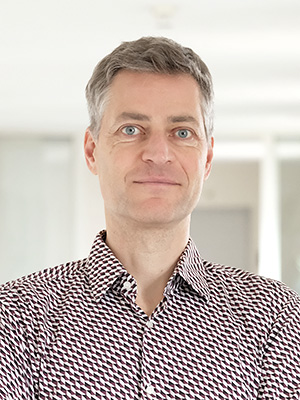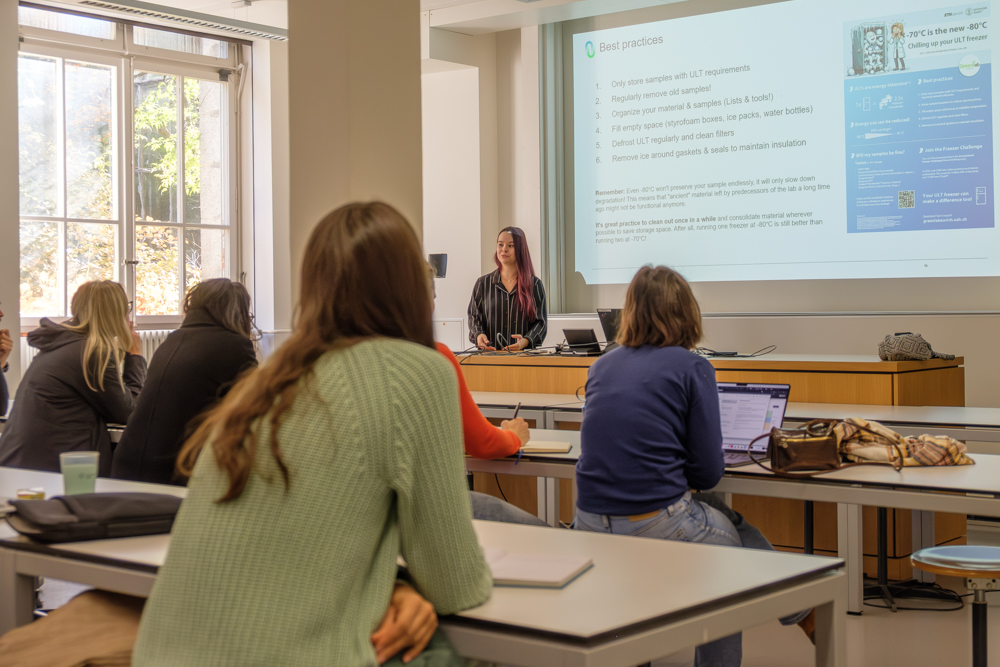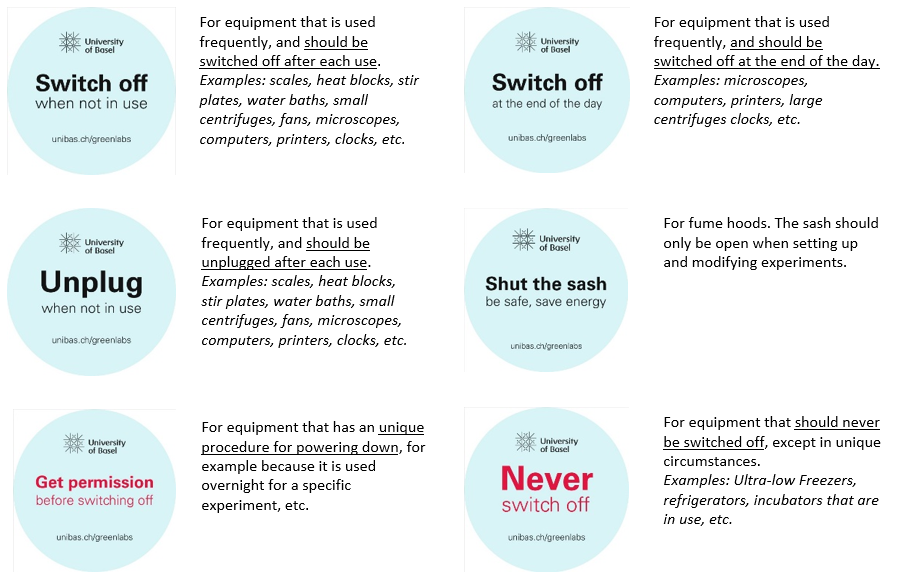Green Lab Initiative

A large proportion of research at the University of Basel takes place in laboratories. And because our research activities also have an impact on the environment, we are looking for ways to help our laboratory operations to become more sustainable, without compromising excellence in research.
Every field of research uses its own methods, equipments and procedures, meaning that each laboratory has its own carbon footprint and we cannnot take a one-size-fits-all approach. A lab working with biomedical research and experiments will not have the same environmental impact as one that uses mainly computers and servers.
The Green Labs initiative at the University of Basel aims at helping researchers and technicians to collaborate and find (new) ideas and solutions that will help making their lab more sustainable. There are a number of ressources at the University and beyond, which provide a framwork for the research community to raise awareness and reduce the carbon footprint of its research.
Green Lab Workshop
Twice a year, the Sustainability Office facilitates a workshop open to all University of Basel researchers and technicians working in laboratories, and are interested on the topic of sustainability. The aim is to exchange ideas and best practices, network and support each other in our efforts.
Next Workshop: 2nd June 2026 10-12h
Get Active
Here are some ideas to get you started with making your lab-research more sustainable:
LEAF - Laboratory Efficiency Assessment Framework: this is a global certification tool, that provides a clear, step-by-step process to improve the sustainability and efficiency of laboratories. Laboratories are awarded either a Bronze, Silver, or Gold level depending on how many sustainability actions they take.
Currently the first six labs of the University of Basel are working on their certification. If you are also interested in the program, please get in touch with the sustainability office.
Freezer Challenge: scientists around the world compete in the International Laboratory Freezer Challenge each year to learn how to be more energy efficient with their lab's cold storage, improve sample accessibility, reduce risk, and save costs for their institutions.
Biozentrum Store & Supply: this central store can be used by all University of Basel's departments. It has a sortiment of over 1000 items, offering almost everything required for research and the administration. Lab consumables and stationary, as well as chemicals, can be ordered online and be collected at the Biozentrum. For access to this service, please contact Alexander Träris.
Stickers for Lab equipment: upon request, we will send you stickers that help remind users to save energy by switching off the equipments whenever they are not being used. Get in touch here to get the stickers.
More useful tips to help green your lab
Ultra-low freezers can use as much energy as an average household every day. Consider increasing the temperature of -80°C freezers to -70°C, it can reduce energy consumption by 30%. There is growing evidence showing that -70°C can be a safe temperature for long term storage
Reduce, reuse, recycle: design your experiments so as to generate the least amount of waste possible. Wash and reuse materials when it is safe to do so, and whenever possible recycle packaging and materials that are not contaminated. When in doubt: ask your suppliers and safety officers about what can be recycled.
Shut the sash: a single chemical fume hood can use as much energy as 3.5 households per day. Shut down biosafety cabinets when work in the hood is complete!
Lab Equipment: whenever possible, share equipment among labs and extend the lifespan of your research equipment by purchasing items that have long lifetimes or can be repaired.
Purchases: reduce packaging and shipping by consolidating orders and buying in bulk.
Data Management Software: using a dedicated data management software such as Labkey, can help you to optimize processes and ressources.
Recap of the last Green Lab Workshop October 2025

On October 29th, the 4th Green Lab-Workshop took place. The topic discussed was cold storage, the focus was in particular on Ultra Low Temperature Freezers.
The session started with three inputs by Chris Weiss, Franziska Brändle and Yves Hartmann.
Chris talked about insights from the Energy Saving Challenge that took place at the Biozentrum and the Department of Physics last year and presented the electricity saving potential when changing the temperature setpoint to a higher value. Franziska from ETH Zurich shared with us best practice examples, Do’s and Don’ts when operating a ULT freezer and showed data on what can be stored safely at -70°C. Yves showed us an overview of ULT freezers in use at the DBM and shared the insight that a temperature rise change did not lead to negative feedback at the department.
These inputs were then followed by lively group discussions in which people exchanged experiences they had had in their laboratories with regard to the management of freezers and increasing the temperature.
Did you know?
The University of Basel is an active members of the the Swiss Network for Green Labs - a community of sustainability experts and scientists working in research laboratories of Swiss Universities and Universities of Applied Sciences. The Network aims to find common solutions to reduce the environmental impact of research activities in wet labs. Get in touch if you would like to know more about it.
Further Ressources
This group at the Department of Biomedicine promotes sustainable research practices, including ways to save energy and resources and operate with the health of our planet and nature in mind.
A resources website with best practice guides on topics including energy, waste, water, green chemestry, lab organisation, etc.
This non-profit organization aims to build a global culture of sustainability in science, and in its website there are many ressources freely available.
This guide to Green Chemistry has practical advice on a set of principles that reduces or eliminates the use or generation of hazardous substances in the design, manufacture, and application of chemical products.
This is an open source software, designed to fulfill the core functionality of an Electronic Laboratory Notebook (ELN) for synthetic organic chemistry while encouraging green and sustainable chemistry. The software automatically presents the hazards and sustainability of an inputted reaction by calculating sustainability metrics and a color-coded assessment of solvents and reaction conditions.
The cooling of computer processors uses substantial energy, furthermore, hardware production impacts the environment through minery, transport and industrial production. This tool estimates the footprint of your computations to aid you in a cost/benefit analysis.
This podcast series discusses obstacles and solutions related to sustainability in science, and gives hands-on tips on how to reduce the environmental impact of your lab work without compromising research.
This is an open resource for the life science community to hep reduce laboratory waste, use greener chemestry, conserve water and save energy. ti includes a fun Lab Sustainability training game
-
Contact information
Michael Vanek
Project Manager Sustainability





